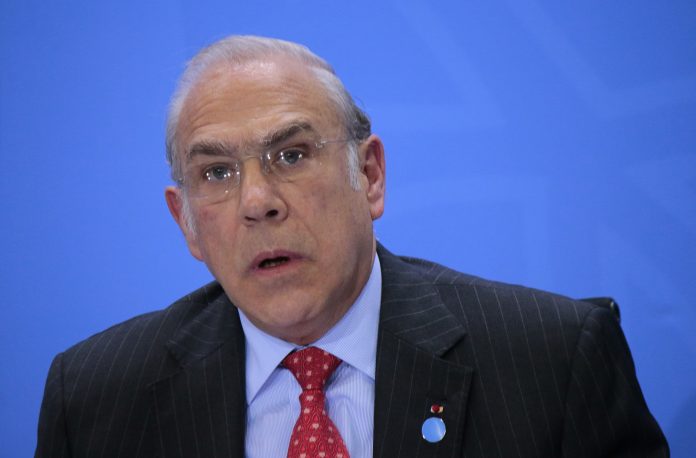OECD Secretary-General Angel Gurría writes here about how to create trade policies during the UK’s Brexit and COVID-19 reality
The COVID-19 pandemic is threatening the health and livelihoods of citizens worldwide. It is a stark reminder that, while globalisation has provided enormous gains, it also has downsides. And, as epidemics know no borders, neither should government responses. Co-ordinated government policies are sorely needed to contain epidemics and to deal with their economic and social ramifications. No single country can claim to have the solution.
If anything, the unforeseen COVID-19 crisis reinforces – and should not eclipse – the need for the United Kingdom to prepare its economy, its society and its democracy for a new post-Brexit reality. In the near future, the UK will have repatriated most responsibilities – essentially regulatory – that previously belonged to the European Union. After almost 50 years of rulemaking, largely geared towards access to the single market and EU-driven co-operation, the country is facing an urgent need to clarify and renew its core Better Regulation Principles, while applying an international co-operation lens to them.
By undergoing this OECD Review of International Regulatory Co-operation, the UK shows its resolve to adapt to this new reality. The review, which has engaged a broad range of stakeholders, documents current rulemaking practices and provides recommendations for adapting to this new post-EU world, a world that is vulnerable to global crises such as COVID-19 and climate change. The Review also provides a sample of international regulatory co-operation practices in four globalised sectors: medical and healthcare products, financial services, nuclear energy, and product safety.
UK and the OECD countries
The UK has been a leader in better regulation among OECD countries for years and has reasserted its leadership by undertaking this Review. Moreover, the UK has well-established regulatory disciplines, cross-government policies providing incentives for a range of departments and regulators to pursue common objectives, and solid oversight institutions, such as the Better Regulation Executive and the Regulatory Policy Committee. These are firm foundations on which to build the next level of better regulation.
International regulatory co-operation starts at home, with departments and regulators becoming increasingly aware of their international environment and their own footprint abroad. The current regulatory processes in the UK offer strong opportunities to open up UK rules to more international considerations. This is in line with the recent efforts to gather evidence on the impacts of UK regulations on international trade and investment.
Bilateral trade after Brexit
Now that the UK has left the EU, regulatory connections need to be rethought bilaterally, regionally and multilaterally. Co-operation with the EU will not vanish – the EU remains the UK’s primary partner in many regulatory areas. To cite two examples explored in this review, the EU is the UK’s largest financial services export market (43% of exports and 34% of imports in 2017) and a major source of pharmaceuticals (46% of exports and 76% of imports in 2017 ). However, the withdrawal from the EU de facto imposes a rethink and a strengthening of co-operation initiatives beyond the EU.
The UK can rely on its thriving participation in international organisations and platforms; the COVID-19 crisis has highlighted the strong participation of the UK in the WHO and other critical IOs. Looking ahead, it would benefit from a more co-ordinated vision and greater peer-to-peer learning of good international regulatory co-operation practices among departments and regulators.
To capitalise on a well-recognised leadership role in regulatory policy and on its international dynamism, the OECD provides a series of recommendations to support the UK.
The OECD recommendations to the UK
● Building and disseminating a whole-of-government strategy for international regulatory co-operation and clarifying roles, responsibilities and co-ordination of key institutions. These include the Better Regulation Executive and the Regulatory Policy Committee in relation to the Better Regulation agenda; the Foreign and Commonwealth Office in relation to foreign and international relations; and the Department for International Trade in relation to cross-border trade policy;
● Applying an international lens to UK rulemaking, to embrace the best of globalisation and strengthen its resilience to global vulnerabilities. The value of international expertise, instruments and best practices needs to be recognised. Relevant methodological tools and scrutiny are needed to apply this knowledge to the design or revision of rules and to account for their international impacts;
● Increasing awareness and understanding among UK Departments and regulators of international regulatory co-operation. This includes the variety of co-operation avenues, showcasing successful experiences and facilitating access to applicable international and foreign instruments of relevance to the UK, so that they can be better leveraged to achieve national policy objectives.
At a time when international regulatory co-operation is increasingly essential for countries to address transboundary policy challenges, the experience of the United Kingdom showcased in this review can offer valuable lessons to other countries within the OECD and beyond.




![Europe’s housing crisis: A fundamental social right under pressure Run-down appartment building in southeast Europe set before a moody evening sky. High dynamic range photo. Please see my related collections... [url=search/lightbox/7431206][img]http://i161.photobucket.com/albums/t218/dave9296/Lightbox_Vetta.jpg[/img][/url]](https://www.openaccessgovernment.org/wp-content/uploads/2025/04/iStock-108309610-218x150.jpg)






